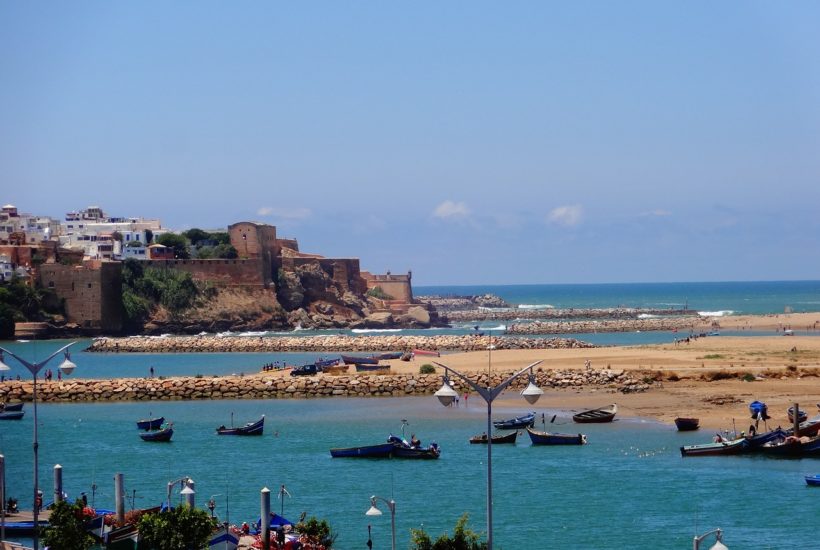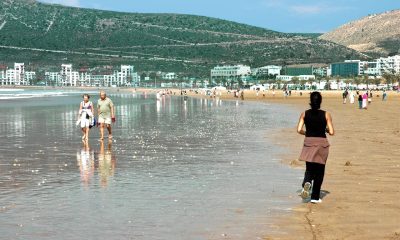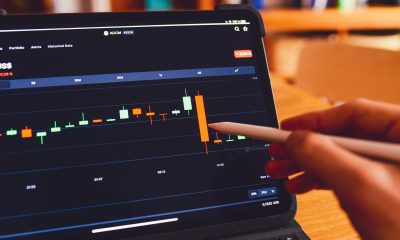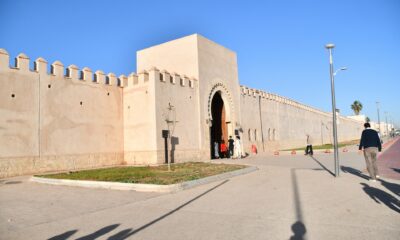Africa
The Tourism Sector in Morocco as a Way to Overcome the Crisis
The economic recovery in Morocco is struggling to materialize in the tourism sector. Faced with the difficulties, the actors of the sector request the renewal of the support measures, arguing that the sector needs to reconstitute the air routes, to accelerate its digitalization to gain in competitiveness, and to be with the listening of the markets, while maintaining permanent contacts with the prescribers.

The tourism sector is going through one of its worst crises and is suffering the consequences of closures due to the pandemic and the latest restrictive measures. While the contract-program of tourism was based on a gradual recovery of the activity, the current situation and recent restrictive measures seem to move away, day after day, the operators of the sector of these objectives.
“The contract-program, relating to the support of the tourism sector, signed on August 6th, 2020, and its rider, provide for contingency measures and objectives designed in the context of recovery of tourism activity from the 2nd quarter of 2021. However, the recovery was not at the appointment in the second quarter, and even less in the third, while recent developments in the health situation in Morocco, and in the world, suggest a growing social risk for the tourism industry in the country, for the rest of this year 2021, or even for the first half of 2022,” said Hamid Bentahar, President of the National Confederation of Tourism (CNT).
To save the furniture, the professionals of the sector go up to the crenel. A letter was sent in this sense, the Ministry of supervision to raise awareness on the need to extend the accompanying measures until the end of 2021. “It is essential that we get the extension of support measures for employment and tourism businesses until the end of December 2021,” said Hamid Bentahar.
Read more on the subject and find the latest economic news from around the world with the Born2Invest mobile app.
The prospects are not great
After more than 16 months of turmoil between stops and resumptions, no sector of the sector has been spared. All, tour operators, guides, hoteliers, restaurateurs, tourist transporters … suffer the massive effects of the crisis. In view of the trends observed on the market, the outlook is not very encouraging. Indeed, with the restrictive decisions adopted by several issuing markets, it is likely that the world economy will now be punctuated by regular border closures, alternating with episodic openings, over the next 12 months, which does not bode well for the sector. But the CNT leader reassures that the fundamentals of the business are solid. “The sector is on its knees, but it is not dead. The desire to travel will always be there, all the studies conducted, both nationally and internationally, prove it.”
Recovery strategy in Morocco
For Hamid Bentahar, the sector needs a strong recovery strategy with sufficient resources, a willingness of public authorities, and a mobilization of all stakeholders. The challenge is to enable the Moroccan tourism industry to survive, return to growth, and regain its place in the national economy, in a horizon of 24 months. “A strategy that should do everything possible to help all players, and companies of all sizes, to recover from this crisis and, beyond that, to project themselves into the future.
The reflections, already conducted at the level of professional corporations of tourism, provide, in the very short term, three urgent measures to support businesses and preserve jobs.
First, social measures, such as maintaining the CNSS device, the program contract, and its extension to December 31, 2021, the revision of schedules for the payment of social charges deferred and due on 2020 and 2021, from 2022, with spread over 24 months. For banking measures, a reprofiling, with the GPBM, of the long-term banking schedule, and finally the strengthening of the intervention of the CGC. For companies in the transport sector, it is requested to postpone leasing credits as well as the repayment of credits taken out by employees in the sector. The 3rd measure concerns taxation and a moratorium for 2020 and 2021, for local taxes, including the business tax, to January 1st, 2022, with spread over 24 months, without charge or penalty.
The measures that have just been taken are intended to contain the spread of the virus. We are aware that, in addition to the vaccine, these are the only weapons currently available to deal with this virus. Of course, we would have liked to see more firmness in the application of distancing measures, wearing of masks, gauges, etc. This could have perhaps prevented us from taking such drastic measures. Now it is becoming obvious that Covid-19 is still there, and that it is the master of the clocks. It will impose closures and reopenings on us. The recovery will therefore be long and difficult, perhaps even impossible for some tourist establishments.
The relevance of the measures to be put in place to support the professions, the workplaces, the tourist establishments, and the urgency of their implementation will be, without a doubt, the keys to the success of the rescue of the tourism world. Most of the reflection has been completed, and our reference remains the program contract and the measures it contains. We would obviously like to see some adjustments, in particular the inclusion of this “stop and go” imposed on us by the pandemic. As for the urgent matters, they remain the same. Starting with the preservation of jobs, the extension of the lump sum of $544 (2,000 DH), tax measures moratorium, and banking facilities. Finally, it should be remembered that, despite the difficulties and prospects of a resumption of activity, under health constraints and limited to domestic tourism and Moroccans of the world, operators have responded present, to renew their employees and accompany the return of activity by rates depriving them of all margins. The state of emergency is also valid for our trades, and urgent measures must be taken.
__
(Featured image by Asuz via Pixabay)
DISCLAIMER: This article was written by a third party contributor and does not reflect the opinion of Born2Invest, its management, staff or its associates. Please review our disclaimer for more information.
This article may include forward-looking statements. These forward-looking statements generally are identified by the words “believe,” “project,” “estimate,” “become,” “plan,” “will,” and similar expressions. These forward-looking statements involve known and unknown risks as well as uncertainties, including those discussed in the following cautionary statements and elsewhere in this article and on this site. Although the Company may believe that its expectations are based on reasonable assumptions, the actual results that the Company may achieve may differ materially from any forward-looking statements, which reflect the opinions of the management of the Company only as of the date hereof. Additionally, please make sure to read these important disclosures.
First published in LesEco.ma, a third-party contributor translated and adapted the article from the original. In case of discrepancy, the original will prevail.
Although we made reasonable efforts to provide accurate translations, some parts may be incorrect. Born2Invest assumes no responsibility for errors, omissions or ambiguities in the translations provided on this website. Any person or entity relying on translated content does so at their own risk. Born2Invest is not responsible for losses caused by such reliance on the accuracy or reliability of translated information. If you wish to report an error or inaccuracy in the translation, we encourage you to contact us.

-

 Biotech1 week ago
Biotech1 week agoEurope’s Biopharma at a Crossroads: Urgent Reforms Needed to Restore Global Competitiveness
-

 Africa4 days ago
Africa4 days agoFrance and Morocco Sign Agreements to Boost Business Mobility and Investment
-

 Impact Investing2 weeks ago
Impact Investing2 weeks agoItaly’s Listed Companies Reach Strong ESG Compliance, Led by Banks and Utilities
-

 Fintech1 day ago
Fintech1 day agoFindependent: Growing a FinTech Through Simplicity, Frugality, and Steady Steps
























